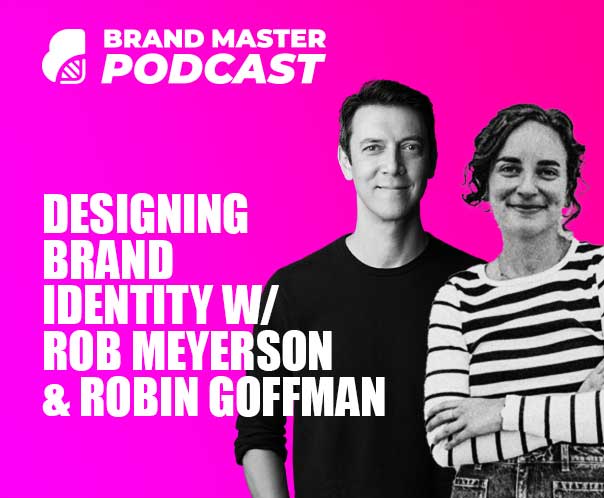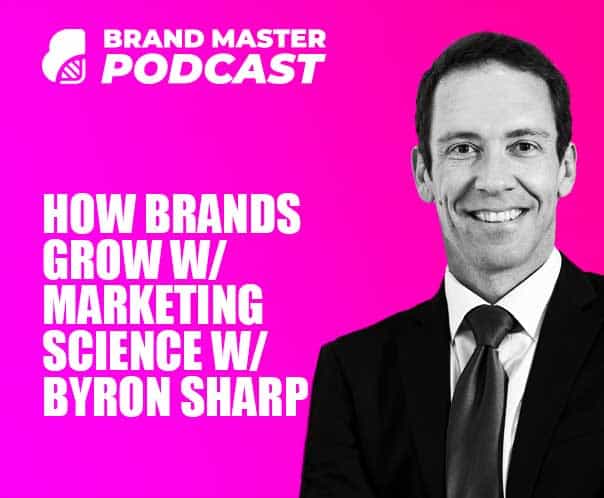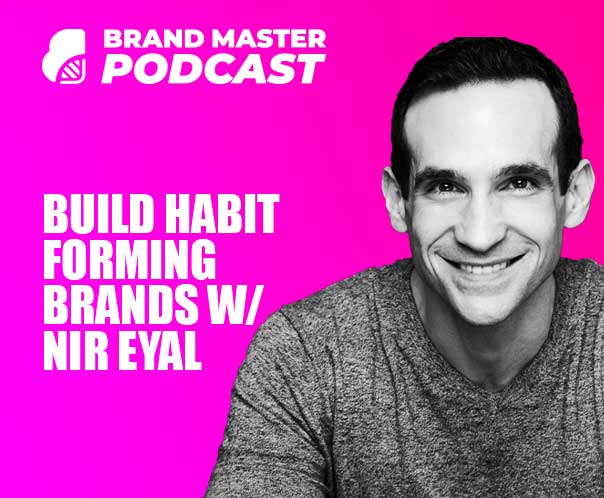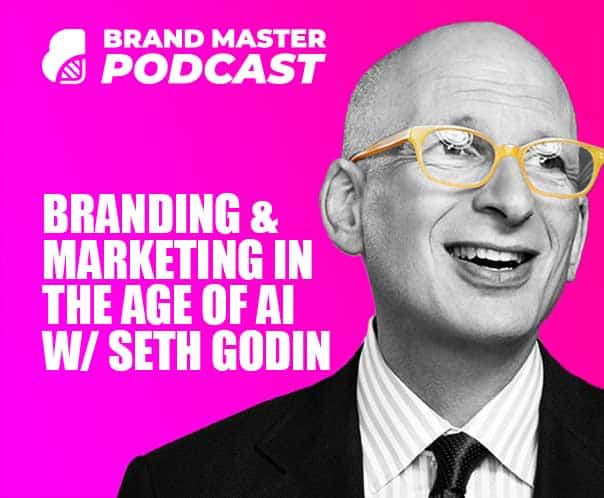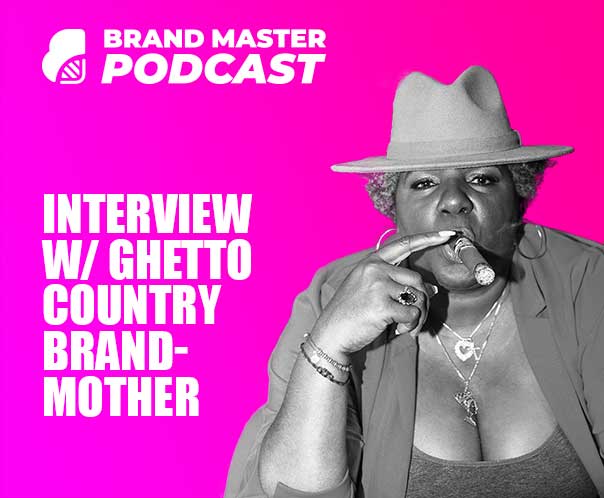On this episode of the Brand Master Podcast, we’re speaking with branding legend the one and only Mr. Marty Neumeier.
Now Marty Neumeier is an absolute pioneer in the branding industry and the best-selling author of industry classics such as The Brand Gap, Zag, and The Brand Flip.
In our chat today, Marty shares his wisdom on how to master brand strategy and ask bigger questions to connect your brand with your audience…
So, if you want to learn what brand strategy is, how this discipline is evolving and the skills you can develop, and steps you can take to become a brand strategist, then stick around for this episode of the Brand Master Podcast.
The Brand Gap by Marty Neumeier
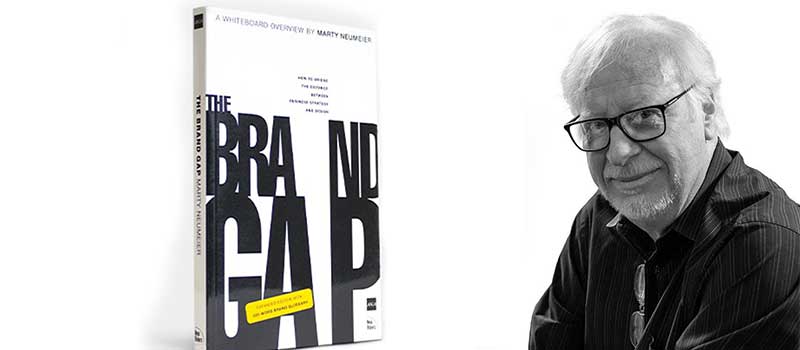
Stephen Houraghan
When I got into design and branding I quickly realized that branding was what I was happiest doing and where I wanted to be.
So that’s when I started to dive down that rabbit hole and learn a bit more and started to dig deeper and that’s when I came across the Brand Gap which completely opened my mind to what branding was all about.
Did you ever expect that book would be so popular and put you on this trajectory to be a pioneer in this?

Marty Neumeier (Summarized)
Well, I hoped it would, but when I wrote it, I realized this was either going to be a home run or I was going to strike out.
I wrote the book and designed the book in such a counterintuitive way, or at least in a style that was not typical of business books.
It’s short, it’s sync, it’s designed, even though the writing is designed in the sense of being very succinct and memorable and quotable and all that kind of stuff, which wasn’t the style of business books that you find now.
So I either thought people are going to love it or they’re going to hate it.
When I saw it finished, I looked through it after all the work that went into it, I kind of just thought I hate it. I just don’t think it’s good and I think I was just probably sick of it.

But when it went out there, people got to look at it and started to buy it. It just shot up the charts and at one point I think probably after six weeks of being on the market, it was number 15 on Amazon.
A pretty incredible for a business book, especially a different one.
People’s ideas started to change what a brand is. So it was great for me and then what happened is someone took a bunch of slides that I had created of the whole book and they put it on a new website called SlideShare.
I didn’t know about it and it probably took me two years to figure out that people were getting it there for free. So I was shocked to see how many views there were of it and thousands of thousands of views, which that’s books I could have sold.
I was grateful for it because it actually was probably part of the success of the book in that it got the word out there and got people reading it and talking about it.
What Is Brand Strategy?

Stephen Houraghan
There are so many quotes from you out there and there are so many quotes from different people about what branding is because it’s such a fluffy thing because it means different things to different people.
But instead of focusing on branding and getting another quote from you about branding, talk to us about brand strategy in a bit more detail.
So what is a brand strategy for you?

Marty Neumeier (summarized)
it’s a long-term plan to outmaneuver competitors through radical differentiation. I think what happens is companies believe they’re being different because they know that differentiation is strategically very helpful.
You don’t want to be competing for head to head with anybody but they underestimate how much difference you really need to make it clear to customers that you really are different.
So that takes constant work and companies usually find that even if they start out really different, they kind of collapse to the center after a while.
They become normal, they become like everybody else because I just think humans are like that. We like to fit in and fitting in is not the best way to stand out.
So it’s just counterintuitive for people. So you really have to always think about
How we can be more radically differentiated knowing that’s going to appear.
It’s just a little bit differentiated to the world outside, since they don’t care what you’re doing, they don’t know everything you’re doing, they’re not paying that much attention.
You have to exaggerate that difference.
PRO Brand Strategy BluePrint
Build Brands Like A Pro Brand Strategist
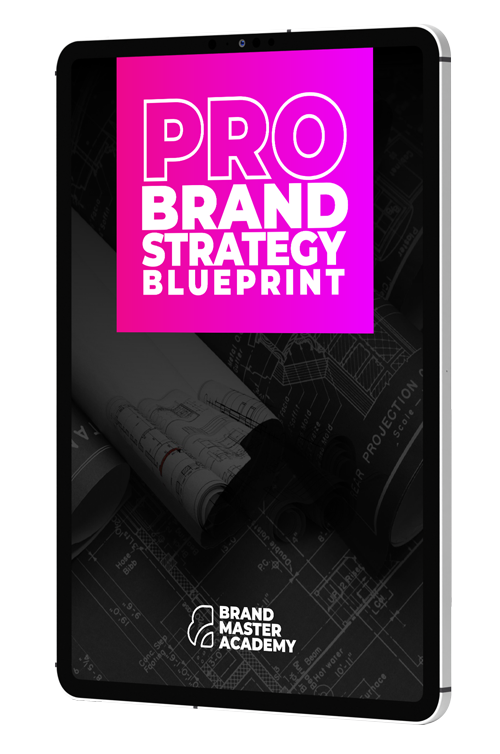
Why Is Brand Strategy So Important?

Stephen Houraghan
So when we speak about branding and especially for creatives and professional brand builders. We speak to a lot of people who misunderstand what branding is
They believe that when you have this visual asset and you have this website and this presence that you have a brand, but in what you’re saying without that you really don’t have anything.
That’s going to really be a drawcard for those people to look towards your brand, as opposed to everybody else there in the market.
When you say radically different because of course we see disruption all the time.
We’re seeing disruption, but with so many businesses, it’s so hard for businesses to go in there and disrupt all the time.
How can brands be so radically different?
What is the process for defining that radical difference?

Marty Neumeier (summarized)
Well, it takes a lot of judgment and imagination, courage, a lot of things that are difficult to come by sometimes in business, but that’s what you need.
Some companies are born that way. They have an idea that’s just dramatic from the beginning. If they didn’t create that brand with knowledge of how to do it with the solid theory behind it, what usually happens is.
They try to repeat that performance.
They fall short because they don’t know how they did it the first time, it was an accident.
So they have an accidental brand.
They came up with something that was different that they believed in and sure enough, they found an audience sport. They found a tribe of people willing to buy it.
When they went to do it again, they didn’t realize that they really didn’t know how to do it.
So what is the discipline of branding?
Does this teach you how to do it over and over at will?
So that’s what good brand people can do. They’ve done it many times and they’ve seen a lot and they worked on different kinds of businesses and they can come in and take a pretty good aim on what has to happen and help these companies because often the founders.
I don’t have the background or the framework for creating something new that has the success factor of the original thing that brought them to the dance.
Explore Brand Strategy
Programs & Tools
How To Find Your Zag (Advantages Of Specialization)

Stephen Houraghan
There absolutely I’d stand on a book that you wrote a few years after the Brand Gap and obviously the premise of that book is when everybody else Zigs you Zag.
And I think a great way for branding professionals to be able to Zag is to find an area of specialization.
What would you say are the advantages of being specialized in a certain area of being, versus being more generalized than, and kind of a Jack of all trades?

Marty Neumeier (summarized)
Well, I guess the first thing is
Reduce the threat of competition.
What you don’t want to do is just be the same as everybody else, because then the only way to win in that competition is by lowering your price. Then that cuts off a lot of options, right?
If you’re not, your profit margins are low. It’s just difficult to go anywhere from there. So you end up just working harder and making less money.
So you want to reduce competition, preferably, you want to become number one in a growing category, moving either by starting the category yourself, which is what disruption is about or by battling your way to the top and that’s the hard way because usually brands or perceptions that customers have in, that’s my definition of a brand.
It’s a person’s gut feeling about a product, service or company. It exists in customer minds, customers’ minds. Iy doesn’t exist somewhere in the company. It’s an effect of the things that you’re doing, right
Getting a customer to change his or her mind about who’s number one in the category is really difficult. Right? You have to do a lot, so it’s often easier to just start out as different.

You start your own category by stretching it in a way that only you’re number one in it to begin with.
So that’s the idea of disruption.
Specialization allows you to not compete on price.
To really get more of the right kind of customers, the kind of customers that are going to take you someplace.
The first thing that people say, if you suggest that maybe they should specialize, they should narrow their offering to a smaller group of people, even though that group might be more passionate about what they’re doing.
The first reaction is we want to widen it.
We want the most number of customers possible, but the world doesn’t work that way because when you broaden your offering to appeal to more people, then you’re also broadening it so that you come in competition with more companies.
So what you want to do is narrow it to a place. You want to find that area where nobody’s working. There’s no business happening there, but there’s an audience.

That’s hard to find sometimes you have to really think about that, but it’s, it’s almost better to find a small, passionate audience that isn’t being served and then grow that audience rather than say, Hey, there’s a large audience.
Maybe we can do something like that and go in there and compete with them. Then you’re just, you’re just a. And your competitors are just competing for the profits.
You just have to keep lowering your price to win and that’s not really what branding is about.
The goal of branding for many companies is to get more people to buy more stuff for more years at a higher price not a lower price.
So you want more people, you want to grow the business. You want them to buy more of what you’re selling for a longer period of time because really, your profit margins go way up.
If you have repeat business and then, you know, you want to get a higher price. So if you’re constantly lowering your price or feeling a lot of price pressure, it’s probably because you’re not differentiated enough.
How To Prepare For The Future Of Branding & Brand Strategy

Stephen Houraghan
So I know that this is a struggle that a lot of creatives have when they go into the market as a freelancer, looking for a business.
They are afraid to narrow that field because they’re afraid of missing out on all of this business with all the changes that are going on.
Obviously it’s a different environment today than when you were doing packaging design with Apple. There’s a lot more people offering these kinds of servers.
Welcome modern creatives to prepare for the change that’s going on so that they can steadily stay ahead of the curve in the coming year.

Marty Neumeier (summarized)
Well, creativity, no matter what branch of it, you’re in, whether you’re a graphic designer or a web designer programmer or even strategists.
Those skills can be very powerful, but not by themselves, not as a general offering of skills, you know,
Hey, I’m a strategist! Do you need any strategy?
That’s not going to help.
You have to apply it to something and where you apply.
It means everything.
So if you can find a place to apply those skills where there’s nobody else fishing in that spot and if something you really want to do, because you’re passionate, Then you found it and you may have to kind of change that over the years because
Once you get successful at something, things happen, people crowd into your space.
The biggest thing that happens, or the worst thing that happens is that the world moves on to something else and so you have to move with the world and you also have to consider your changing interests.
You want to be able to stretch yourself and do new things.
It’s a moving target and that’s how things work and in the consulting business.
I started as a graphic designer. And then I became a writer because I wanted to control my graphic design and I didn’t want people messing it up with bad copywriting.

So I had to learn that and then I realized that another thing that was messing up my work is bad strategy.
Companies with dumb ideas that were forcing me to do something that I knew wouldn’t work for them.
I had to learn strategy just in self-defense, but it was a great thing, a freeing thing, because once I understood the idea of strategy.
I could actually apply it to my own business and become more specialized in a way that would make me happier and also look at my client’s business in a new light, in a more strategic light.
Brand Strategy vs Marketing Strategy

Stephen Houraghan
Something, something that I find that it’s quite entertaining and funny in our industry. You have so many different perspectives and because, you know, there’s a lot of creatives in there. We’ve tend to put our foot in each camp and a few camps that I’ve seen, time and again.
We’ll be the Marty Neumeier Camp versus the Mark Ritson camp versus the Byron Sharp camp and all of these disciplines with branding with Marty side of things the Byron Sharp being really heavily detailed on the science behind why we buy, et cetera.
What do you see as the main difference between brand strategy versus marketing strike?

Marty Neumeier (summarized)
Well, marketing and brand really existed on different planes in a way. Not that one’s more important than the other. They’re both super important, but marketing tends to be more tactical, there are shorter timeframes for a lot of it.
Not all of it, but it’s the marketing strategy’s job to
Keep revenues coming in like clockwork right and to increase those revenues.
Brand strategy doesn’t worry about short-term sales as much as marketing, it’s more concerned about larger, I would say, larger strategic issues.
Larger in the sense that the time horizon is longer, like really planning for long-term success.
You’re preparing the ground for long-term success.
Marketing needs that ground to be prepared and certainly people in marketing can do branding, but in a large company, the head of marketing which the COO is not going to be able to.
Branding for the company requires different sorts of energy levels and different ways of thinking.
So I think you need both, I think they’re complimentary. There’s no war between marketing and branding. Practically people who are in marketing, have a better shot of understanding branding than other people.
If you define the brand as something that unifies the customer community, which is kind of the way I look at it, you need somebody to manage those customers.
Your goal is, and to extract as many transactions as possible from your customers.
If you’re a brand person it’s about creating this loyalty in a group of people, so that they’ll just keep buying stuff from you because they love you.
I see branding is more on a level with business strategy.
Business strategy and brand strategy have to be swimming in the same pool at the same time marketing people have to be brilliant in different ways and really on top of it.
How To Calculate The ROI Of Branding

Stephen Houraghan
Do you have questions from customers about what the ROI of Branding is?
Because I know that myself personally, I’ve come across this before a lot of people in our group, they get talking with clients on today with so many metrics available for digital marketing, that the ROI on this,
It’s very easy for business owners like that to chase those metrics so that they can get some kind of guaranteed return on investment.
Did you come across that question before what’s ROI of branding?
How do you answer it?

Marty Neumeier (summarized)
Well, I think they should try to figure that out. I mean, the simplest answer is you get a brand account and they’ll tell you what your brand is worth.
Apple’s brand is worth maybe, 65% of their evaluation of their total company Coca-Cola is up there somewhere too.
It can get pretty high or you could be like, Microsoft was around the turn of the century. Their brand was worth 17% of the value of their company.
So obviously branding wasn’t the reason Microsoft was successful; they were losers at branding, but they hadn’t locked on the marketplace.
So that’s kind of like brute strength is what they had and now since their brand got sorted behind, it’s a struggle for them. Cause they never invested in that and they don’t have the lock on the market that they used to have.
So I think branding is going to give you more ROI than just about anything.

Companies can work around branding, they don’t necessarily need it, but I think the best companies, the one that lasts typically have strong brands
In my book, The Brand Flip, I’ve got a way to measure brands.
iIt’s very simple anybody can do it, It doesn’t cost a lot of money, It’ll give you a really good not heuristic about how your brand is doing.
It was based on the real things you need to measure.
You could hire a brand accountant, there are lots of little measurements you can use and new ones are coming out all the time.
Evidence for a brand being very powerful is coming out slowly over the years, but you can even see it in its effect on stock price. It’s quite remarkable actually.
If you know how to do branding and you’ve got the framework in place, the infrastructure in place to do it. If you really grasp it, you can really do a lot with branding.
What Is A Chief Brand Officer?

Stephen Houraghan
I know that you’ve been a massive advocate for us seeing somebody in the boardroom who represents the brand only and that’s the Chief Branding Officer.
Talk to me about the chief branding officer. What does a chief branding officer and how do you see that role evolving in the coming year?

Marty Neumeier (summarized)
Well, the chief brand officer is the person who’s speaking on behalf of customers.
That’s the sort of representing customers to the company and vice versa that requires bridging the gap between logic and magic.
Most companies in the last a hundred years have been all about logic and numbers and sort of left-brain stuff but that doesn’t get you into the minds and hearts of customers.
As much as the magic part it comes from really great touchpoints. Speaking to people in a voice that goes right down inside them. You know what I mean?
All this kind of stuff is more like art.
So who’s going to be responsible for bringing the logic and the magic together? Whoever can do that is probably a natural CBO (Chief Brand Officer).
So my poster boy for CBO is Steve Jobs, his title was the CEO, but everything he was doing was the role of a CBO, the way I looked at it.
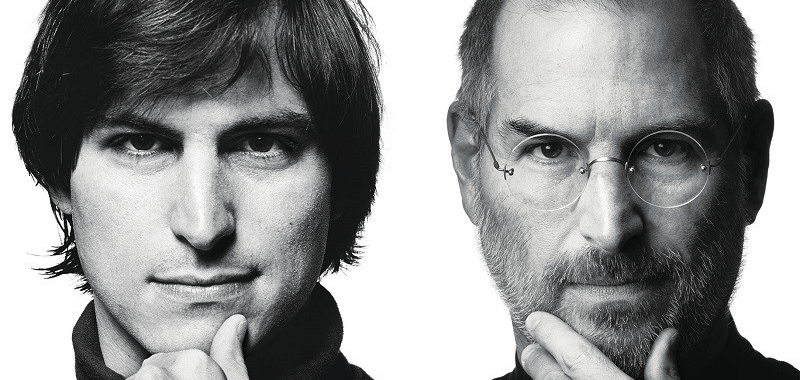
He was all about which products do we produce and how do they fit together?
What’s the architecture of all these brands, all these sub-brands that we have? How do they work together to create something more than just individual products? Like, how do we make one-on-one become 11?
He was also all about how we communicate it to people.
He was very involved in that and what he was not involved in is shareholder meetings, spreadsheets, the finance part of it. He left that to other people, which is a nice thing to happen, but he was the figurehead for Apple in a way.
But the reason that worked is that
All about customers and how do we change their lives?
How do we make them into better people?
That’s kind of the job of a CBO and there’ve been other CBOs like Claudia Kotchka, who was the CBO without being called that at Proctor and Gamble.
At Intel there was Susan Rockwell, she had to communicate between the audience out there and the engineers who were building the products.
What Questions Should A Brand Strategist Ask?

Stephen Houraghan
Setting the foundation for what the brand is all about.
A lot of small businesses, certainly jump into the visual part of the brand and then straight to marketing without really getting clear on what the brand is.
What their message is, who they’re really trying to connect with and what they want to say, what they want to place in the mind of that audience, about what they should mean to them.

Marty Neumeier (summarized)
So that’s how brands, that’s the roots of brand, go back to identity, basically, just identifying the product, which is pretty a small part of branding today.
Those elements are important.
You have to have an identity.
You have to have a tone of voice.
You have to communicate with people, you need design, you have to make products, all that, but that’s not really what people are buying.
People are buying some improvements to their lives usually and you’ve got to really have a sense of what they need from you.
You have to be able to fulfill that need in a way that nobody else can.
It’s difficult work, but if you don’t get the big things right, All the advertising and marketing and selling in the world is not going to get you where you want to go, because you don’t know where you’re going.
So I think branding is something that informs the whole company and its customers about what we’re doing here to get.
The three big questions that branding answers are,
Who are we?
What do we do?
Why does it matter?
And if I were going to add a fourth one, I would say it’s
How should we show up in the world?
Find Marty Neumeier

Stephen Houraghan
Now, if anybody wants to get in touch with Mr. Marty Neumeier, how do they go about doing that?
What’s the best place to get you all?
Where’s your most active platform?

Marty Neumeier (summarized)
I’ve got two. So one is my author website and that’s just martyneumeier.com.
If you’re interested in learning more about branding and expanding your skill, stretching your abilities a bit I have a firm called level C that’s teaching branding.
So I think it’s the only company that’s teaching branding specifically from the point of view of people have done it. You can be certified in some specialties and work your way up through that and we’re adding more classes all the time.
So that’s levelc.org.
Wanna Learn More About
Brand Strategy?
On-Demand Digital Program
Brand Master Secrets
Make the transition from hired-gun to highly valued brand strategist in less than 30 days. The systems, frameworks and tools inside this comprehensive program are all you need to level up.







